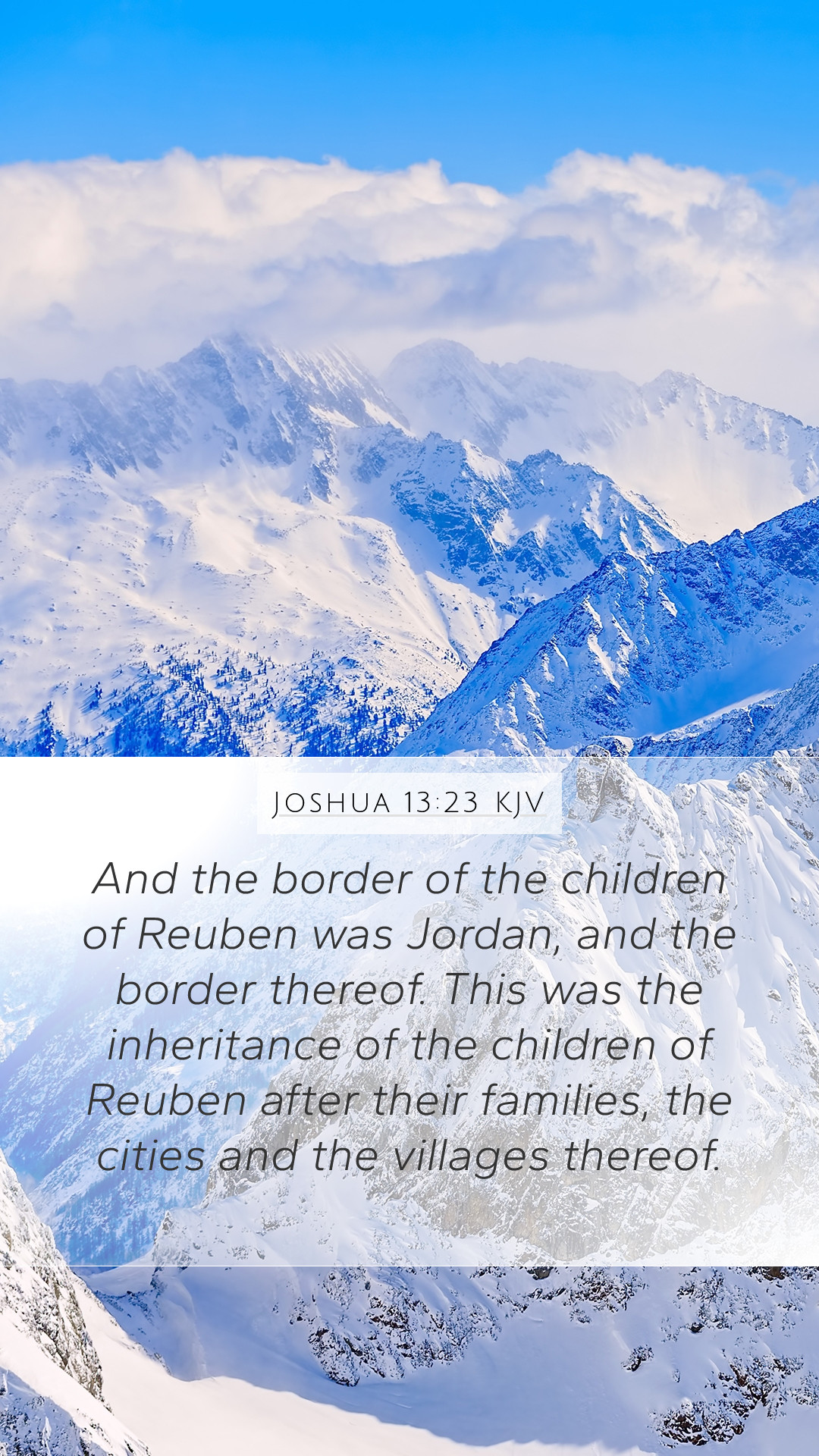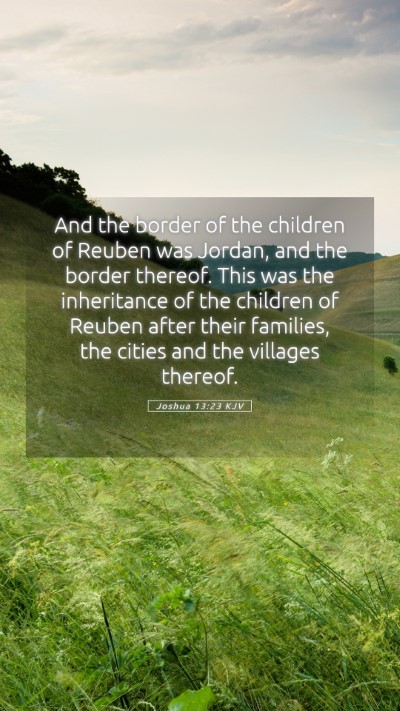Bible Verse Meaning and Commentary on Joshua 13:23
Understanding the Bible verse meanings requires delving into the context and interpretations provided by respected public domain commentaries. In this analysis of Joshua 13:23, we explore insights from renowned commentators such as Matthew Henry, Albert Barnes, and Adam Clarke.
Verse Text
Joshua 13:23 (KJV): "And the border of the children of Reuben was Jordan and the border of it."
Context and Background
To fully grasp the meaning of Bible verses, it is essential to consider the historical context. Joshua 13 outlines the allocation of land among the tribes of Israel after their conquest of Canaan. This chapter emphasizes the borders designated to each tribe and the significance of their territories.
Commentary Insights
-
Matthew Henry: Henry emphasizes the importance of proper land distribution among the tribes, noting that the land of Reuben is significant due to their historical lineage. He discusses how the gifts God bestows are to be passed on to future generations and how faithfulness in inheritance reflects a commitment to God’s promises.
-
Albert Barnes: Barnes elaborates on the notion of boundaries and borders, indicating their role in defining identity for the tribes. He highlights that understanding one’s borders is crucial for understanding one’s place in God’s plan. Such distinctions in land signify the fulfillment of God's covenant, showcasing His providence and guidance for His people.
-
Adam Clarke: Clarke interprets this verse as a marker of heritage for the children of Reuben, noting the geographical boundaries that establish their identity and claim in the promised land. He underscores the notion of territorial possession as an act of divine assurance that God fulfills His promises as made to the patriarchs.
Theological Significance
Joshua 13:23 presents various theological themes worth exploring for enhanced Bible study insights. The delineation of territory symbolizes God's faithfulness to His people and the importance of their heritage:
- Divine Promise: The allocation of land represents fulfillment of God’s promises to the Patriarchs.
- Identity in Christ: The concept of borders relates to spiritual boundaries and identities in the Christian faith.
- Covenant Relationships: This verse showcases how God maintains covenants through generations, encouraging believers to recognize their inheritances from Him.
Application to Daily Life
Understanding Scripture such as Joshua 13:23 can be transformative in daily living:
- Reflect on your own spiritual inheritance and how it informs your identity.
- Recognize the importance of boundaries in your life—what defines you and your commitments.
- Engage in online Bible study or Bible study groups to explore communal interpretations of Scripture.
Cross References
For a more comprehensive understanding, consider these Bible cross references that relate to the themes found in Joshua 13:23:
- Numbers 32:1-5 - Discusses the land preferences of the tribes.
- Deuteronomy 3:12-17 - Further details the territories received by Reuben and Gad.
- Joshua 1:6-9 - God’s call to Joshua to lead and distribute the land.
Final Thoughts
In conclusion, the explanation of Joshua 13:23 holds layers of meaning that are enriched by the insights of various commentaries. Through it, believers can glean lessons on faithfulness, identity, and the importance of recognizing God’s promises in their lives.
Further Study and Exploration
For those interested in deeper Bible study lessons, exploring the historical context of Israel's inheritance can be beneficial. Resources such as Bible study tools, Bible study guides, and Bible study materials can aid in understanding these Scriptures better.


